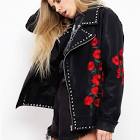Embracing Ethical Clothing: A Sustainable Fashion Choice
The Rise of Ethical Clothing: A Sustainable Fashion Revolution
In recent years, the fashion industry has seen a significant shift towards ethical clothing. Consumers are becoming more conscious about the environmental and social impact of their purchases, leading to a growing demand for sustainable and ethically produced garments.
Ethical clothing refers to garments that are made with respect for people, animals, and the planet. This includes using eco-friendly materials, ensuring fair wages and working conditions for workers, and promoting transparency throughout the supply chain.
One of the key principles of ethical clothing is sustainability. This involves using materials that are renewable and have minimal impact on the environment. Organic cotton, bamboo, hemp, and recycled fabrics are some examples of sustainable materials that are commonly used in ethical fashion.
Another important aspect of ethical clothing is fair trade practices. This means ensuring that garment workers receive fair wages, safe working conditions, and are treated with dignity and respect. By supporting brands that adhere to fair trade principles, consumers can help improve the lives of workers in the fashion industry.
Transparency is also crucial in ethical clothing. Brands that are transparent about their sourcing and production practices allow consumers to make informed choices about their purchases. By providing information about where their clothes are made and under what conditions, brands build trust with their customers.
The rise of ethical clothing reflects a growing awareness among consumers about the impact of fast fashion on the environment and society. By choosing ethically produced garments, individuals can contribute to a more sustainable and equitable fashion industry.
As ethical clothing continues to gain momentum, more brands are embracing sustainable practices and offering eco-friendly options to their customers. By supporting these brands and making conscious choices about what we wear, we can all play a part in creating a more ethical and sustainable future for fashion.
Five Tips for Embracing Ethical Fashion and Building a Sustainable Wardrobe
- Look for clothing made from sustainable and eco-friendly materials such as organic cotton, hemp, or bamboo.
- Support brands that have transparent supply chains and fair labour practices.
- Choose quality over quantity to reduce waste and promote a more sustainable wardrobe.
- Shop second-hand or vintage clothing to give pre-loved items a new life and reduce the demand for new production.
- Educate yourself about ethical fashion practices and the impact of fast fashion on the environment and workers in the industry.
Look for clothing made from sustainable and eco-friendly materials such as organic cotton, hemp, or bamboo.
When shopping for ethical clothing, it is advisable to seek out garments crafted from sustainable and eco-friendly materials like organic cotton, hemp, or bamboo. These materials not only reduce the environmental impact of clothing production but also promote a more sustainable approach to fashion. By choosing clothing made from these natural and renewable resources, you can contribute to a greener and more ethical fashion industry while enjoying high-quality and environmentally conscious attire.
Support brands that have transparent supply chains and fair labour practices.
Supporting brands that have transparent supply chains and fair labour practices is crucial in promoting ethical clothing. By choosing to purchase from these brands, you are not only ensuring that the garments you wear are produced ethically but also supporting a more sustainable and equitable fashion industry. Transparency in the supply chain allows consumers to make informed decisions about their purchases, knowing that the workers involved in making the clothes are treated fairly and with respect. By prioritising brands that uphold fair labour practices, you are contributing to a positive change in the fashion industry and advocating for a more ethical approach to clothing production.
Choose quality over quantity to reduce waste and promote a more sustainable wardrobe.
Choosing quality over quantity when it comes to clothing is a crucial tip for promoting ethical fashion practices. By investing in well-made, durable garments that stand the test of time, we can reduce waste and lessen the environmental impact of our wardrobe. Opting for high-quality pieces not only helps to minimise the need for frequent replacements but also encourages a more sustainable approach to fashion consumption. By valuing craftsmanship and longevity in our clothing choices, we can contribute towards building a more sustainable and eco-conscious wardrobe that benefits both us and the planet.
Shop second-hand or vintage clothing to give pre-loved items a new life and reduce the demand for new production.
By choosing to shop for second-hand or vintage clothing, you not only give pre-loved items a new lease on life but also play a significant role in reducing the demand for new production. Embracing second-hand fashion allows you to discover unique pieces with character while contributing to a more sustainable fashion industry. By extending the lifespan of clothing and accessories, you help minimise waste and lessen the environmental impact of the fashion sector. Make a stylish statement while supporting ethical practices by opting for second-hand treasures that tell stories of their own.
Educate yourself about ethical fashion practices and the impact of fast fashion on the environment and workers in the industry.
To make informed decisions about ethical clothing, it is crucial to educate yourself about ethical fashion practices and the detrimental impact of fast fashion on the environment and workers in the industry. By understanding the consequences of our purchasing choices, we can actively support brands that uphold sustainable and fair trade principles, ultimately contributing to a more responsible and compassionate fashion industry.

Leave a Reply